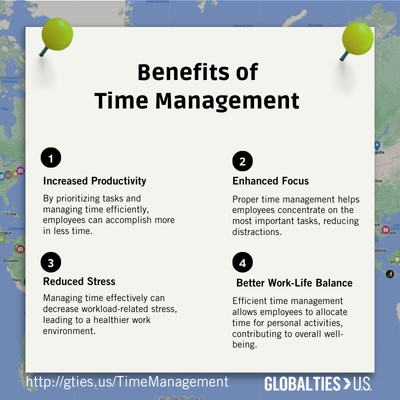Time management is crucial for success in today’s fast-paced work environment. It directly impacts productivity, stress levels, and the overall well-being of employees. This article explores the importance of time management in the workplace and provides practical strategies for improving it.
Effective time management allows employees to accomplish more in less time, leading to increased productivity and reduced stress. It enables better focus on important tasks, minimizing distractions and improving overall work quality. Furthermore, strong time management skills contribute to a healthier work-life balance, fostering personal well-being and job satisfaction.
According to author Tim Ferris, constant busyness can be a form of laziness, indicating a lack of prioritization. True time management involves focusing on important tasks, not just urgent ones. Stephen Covey, a renowned time management expert, emphasizes the importance of controlling what we can, namely our time, to achieve a more fulfilling life.
Key Strategies for Effective Time Management
Peter Drucker’s management theory, “what gets measured gets managed,” highlights the need for quantifying and tracking time spent on activities. While digital and physical planners, time limits, and minimizing distractions are helpful, more specific strategies are often necessary.
SMART Goals: Setting Specific, Measurable, Achievable, Relevant, and Time-bound goals provides clear direction and a sense of accomplishment.
Weekly Block Planning: This involves:
- Identifying Seven Priorities: Choose one key priority for each day of the week, aligned with your most important goals.
- Scheduling Mandatory Meetings: Block out time for all required meetings and appointments.
- Filling in the Blanks: Allocate remaining time blocks for specific projects and tasks, being realistic about your capacity.
- End-of-Week Review: Analyze your adherence to the plan, identifying completed, postponed, and the reasons for any delays.
- Adjusting the Plan: Modify your strategy for the following week based on the previous week’s review, addressing any patterns of distraction or underestimation.
- Continuous Improvement: Regularly repeat this cycle to refine your time management skills and enhance productivity.
The flexibility of weekly block planning allows for adjustments as priorities shift. It helps identify what truly requires attention and fosters a sense of control over your schedule.
Overcoming Common Time Management Challenges
Procrastination, overcommitment, distractions, and lack of planning are common obstacles to effective time management. Breaking down tasks, setting deadlines, rewarding accomplishments, learning to say no, and creating a conducive work environment can help overcome these challenges.
Author Dave Crenshaw, in his book The Myth of Multitasking, debunks the idea of effectively juggling multiple tasks simultaneously. The human brain functions more efficiently when focused on one task at a time.
Stress management is also crucial for effective time management. Incorporating leisure time, laughter, breaks, positive self-talk, changes of scenery, healthy eating, exercise, and focusing on controllable factors can significantly reduce stress and improve overall well-being.
Leveraging Technology for Time Management
Technology offers valuable tools for enhancing time management. Project management software like Basecamp centralizes tasks, communication, and scheduling. Microsoft Outlook provides email management, calendar scheduling, and task organization. CRM platforms like Salesforce consolidate key data, streamlining workflows and saving time.
Conclusion
Effective time management is essential for workplace success. By implementing strategies like SMART goals, weekly block planning, overcoming common challenges, and leveraging technology, individuals can significantly enhance their productivity, reduce stress, and achieve a better work-life balance. Continuous self-improvement and a commitment to refining time management skills are crucial for long-term success.

